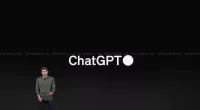Reliance Jio and Bharti Airtel (India’s biggest telecom players) are reportedly opposing the government’s plan to charge satellite internet providers a lower fee for using spectrum bands, for which these telecoms have paid billions over the years in one if the world’s most expensive telecom spectrum markets. The core of the dispute is the Telecom Regulatory Authority of India’s (TRAI) recommendation to impose a 4% annual revenue fee on satellite service providers, reports Reuters.
The Cellular Operators Association of India (COAI) – which represents Jio, Airtel, and other telecom players – argue that the proposed 4% annual revenue fee for satellite services is too low compared to the around 21% they pay to use spectrum for mobile networks. According to this group, the lower fee could give an unfair advantage to new players like Elon Musk’s Starlink entering the Indian telecom space.
As per the report, in a letter sent to the telecom ministry on May 29, the COAI called for a review of the pricing proposal, claiming that it creates an unfair competitive environment. The association pointed out that traditional mobile service providers are required to acquire spectrum through expensive auctions and, after factoring in various fees and levies, end up paying the government about 21% of their revenues.
These companies specifically point out Starlink as a prime beneficiary of the proposed low spectrum fee. Notably, Reliance and Airtel have invested heavily in acquiring 5G spectrum (nearly $20 billion combined) and are concerned that the lower fees for satellite operators could weaken their competitive advantage. They argue that spectrum pricing should be fair, sticking to the principle of ‘same service, same rules’, especially when satellite services are targeting the same consumer base in urban and semi-urban areas.
Meanwhile, for its part, Starlink had already contended that satellite spectrum is a shared natural resource and should not be auctioned. Instead, the company urged Indian authorities to allocate spectrum through licensing, in line with global practices followed in several other countries for satellite communications.
Earlier in March 2025, India’s Communications Minister Jyotiraditya Scindia defended the administrative allocation of satellite spectrum, highlighting the shared nature of satellite frequencies and questioning the feasibility of auctioning such shared resources. Even in the same month, Airtel and Reliance Jio announced their partnership with SpaceX to bring Starlink’s high-speed satellite broadband services to India. These collaborations are currently contingent on regulatory approvals.
The latest development becomes more significant considering Starlink is said to be nearing the final stages of obtaining its Global Mobile Personal Communication by Satellite (GMPCS) license in India. The company has agreed to a new set of conditions imposed by Indian authorities. Once operational, the satellite-based internet service provider aims to offer high-speed, low-latency internet services, especially targeting remote and underserved regions. Initial plans suggest the company could offer bandwidth between 600 Gbps and 700 Gbps, with pricing expected to start at about ₹850 per month (~ $10/month).
The Tech Portal is published by Blue Box Media Private Limited. Our investors have no influence over our reporting. Read our full Ownership and Funding Disclosure →






